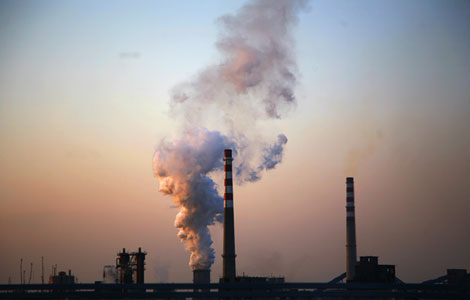
"The only difference with our international peers is I speak better Chinese than the rest of my partners," Li said.
Alberta, where Calgary is located, has some of the largest known reserves of recoverable oil sands in the world, accounting for about 98 percent of Canada's oil reserves, ranking as the world's No 3 in proven crude-oil reserves, according to the Alberta government.
There were 127 operating oil-sands projects in Alberta as of January, five of which are mining.
Ed Whittingham, executive director of the Pembina Institute, a Canadian think-tank that advocates sustainable energy solutions, said that his organization will wait at least one or two years to see what actions will be taken by CNOOC.
Whittingham said Nexen's being "no leader in environmental performance" concerns him and his environmental peers, who believe the oil sands in Canada are "quickly becoming consolidated".
"We don't have any opposition to foreign companies acquiring Canadian ones in order to operate in the oil sands...(but) Any foreign investors should do more than just relying on compliance," he said.
"We need oil-sands operators to go beyond what's required of them by law, go beyond compliance, (to) the truly improved environmental performance, whether it be on land basis, water basis and air basis or climate basis," said Whittingham.
Licata, the New York based energy strategist, said he is encouraged by CNOOC New Energy Investment Co Ltd, a subsidiary founded in 2007 which engages in the development and utilization of renewable and alternative energies, citing it is making "big strides" in the advanced lithium battery and wind markets.
"I would like to see that expand as well as for the company to communicate those alternative energy initiatives better to investors," he said.
 HK's new cruise terminal receives luxury liner
HK's new cruise terminal receives luxury liner
 Future points to carbon trading
Future points to carbon trading
 Seafood businesses flounder amid spending cut
Seafood businesses flounder amid spending cut
 Equities slump amid slow-growth estimates
Equities slump amid slow-growth estimates
 Auto show opens with much fanfare in Xi'an
Auto show opens with much fanfare in Xi'an
 Sunnylands summit fuels Chinese tourism interest
Sunnylands summit fuels Chinese tourism interest
 'Palace on wheels' on sale for $3.13m in Dubai
'Palace on wheels' on sale for $3.13m in Dubai
 Fortune smiles on Chengdu as forum concludes
Fortune smiles on Chengdu as forum concludes